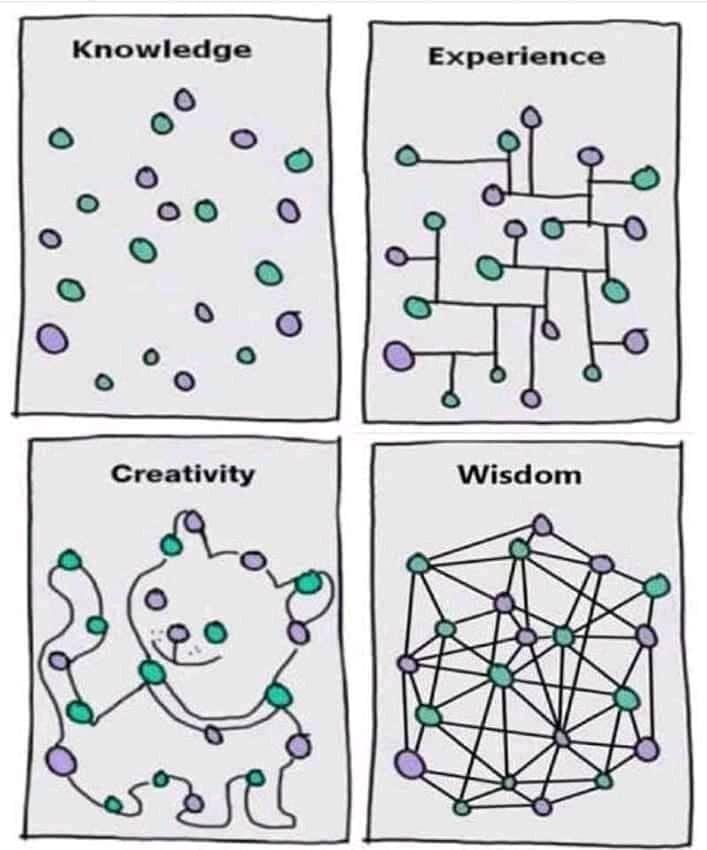
SELF-KNOWLEDGE
I was at one time on the Library and Information Management masters programme at the Liverpool Business School at Liverpool John Moores University. In fact, I had two spells on the programme, I loved it so much. One of the first things I had to do was deliver a presentation on Knowledge Management. In complete contradistinction to the entire point of the exercise, I was soon drowning in surfeit of information. I had enough materials for a book, a substantial one at that.
Leaving the challenges of practice to one side, I did learn the theory of the knowledge and process continuum, leading from data to information to knowledge to understanding to wisdom. I didn't realize it at the time, but can see clearly now that I was being tasked with something that autistic people find it extraordinary difficult to do - edit, manage, order, control. Not only is everything present at once, everything is also interconnected. The urge to systematize and arrange everything within an architectonic must surely arise from this.
It has been two years since I was diagnosed with Autism Spectrum Condition. I have spent those two years pursuing leads and links into oblivion. The expectations raised by diagnosis have proven to be false, with only brick walls and closed doors to be found at the end of all those leads and links. I've been inclined to dismiss diagnosis and the AS Report that comes with it as a waste of time and energy. I have been known to argue that instead of the wealth of links and resources at the back of the Report, diagnosticians should simply tell autistic people - particularly adults - that you are on your own and spitting in the wind, prepare to fight, fight, and fight again, in face of authorities that place every obstacle in front of you.
But this is only a half-truth, albeit still depressingly true. The social implications of diagnosis are grim indeed - 'society' is unbending, unhelpful, and uncaring, you are on your own. All the changes to be made are expected to come from the autistic person, not 'society.'
So there it is. The other half of the truth is that diagnosis is about autistic people informing themselves about autism and equipping themselves as best they can to meet the challenges that they will continue to face. That's a fairly depressing conclusion, since autistic people have been doing some such thing their entire lives. But at least, with diagnosis, they can now do this with substantial knowledge behind them. This is actually a not inconsiderable resource. In the past, lacking knowledge of autism, I would be left floundering in chaos and confusion when faced with difficult situations and encounters, seeking to clear myself of blame and shame when things have seemingly gone wrong. I would waste an awful amount of energy fighting apparent lies. slights, and calumnies. In light of diagnosis and the access to knowledge it brings I am now able to identify a problem immediately, break it down into component parts, assess it accurately, and focus my energy.
Basically
Information plus experience equals a self-knowledge which opens the path to wisdom.
And it frees time and energy for creativity.
"This is the real secret of life - to be completely engaged with what you are doing... And instead of calling it work, realize it is play."
- Alan Watts

